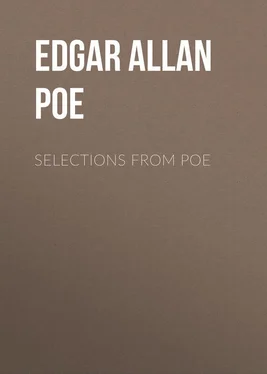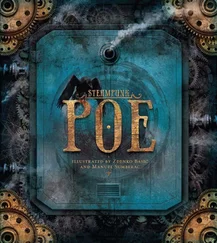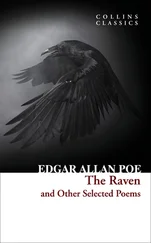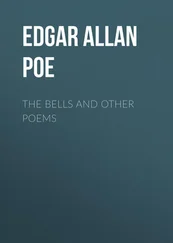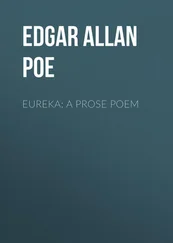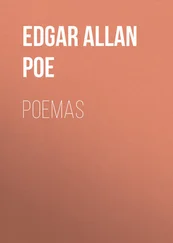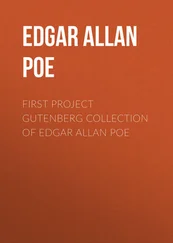Edgar Poe - Selections from Poe
Здесь есть возможность читать онлайн «Edgar Poe - Selections from Poe» — ознакомительный отрывок электронной книги совершенно бесплатно, а после прочтения отрывка купить полную версию. В некоторых случаях можно слушать аудио, скачать через торрент в формате fb2 и присутствует краткое содержание. Жанр: literature_19, foreign_antique, foreign_prose, на английском языке. Описание произведения, (предисловие) а так же отзывы посетителей доступны на портале библиотеки ЛибКат.
- Название:Selections from Poe
- Автор:
- Жанр:
- Год:неизвестен
- ISBN:нет данных
- Рейтинг книги:3 / 5. Голосов: 1
-
Избранное:Добавить в избранное
- Отзывы:
-
Ваша оценка:
- 60
- 1
- 2
- 3
- 4
- 5
Selections from Poe: краткое содержание, описание и аннотация
Предлагаем к чтению аннотацию, описание, краткое содержание или предисловие (зависит от того, что написал сам автор книги «Selections from Poe»). Если вы не нашли необходимую информацию о книге — напишите в комментариях, мы постараемся отыскать её.
Selections from Poe — читать онлайн ознакомительный отрывок
Ниже представлен текст книги, разбитый по страницам. Система сохранения места последней прочитанной страницы, позволяет с удобством читать онлайн бесплатно книгу «Selections from Poe», без необходимости каждый раз заново искать на чём Вы остановились. Поставьте закладку, и сможете в любой момент перейти на страницу, на которой закончили чтение.
Интервал:
Закладка:
Edgar Allan Poe
Selections from Poe
PREFACE
Edgar Allan Poe has been the subject of so much controversy that he is the one American writer whom high-school pupils (not to mention teachers) are likely to approach with ready-made prejudices. It is impossible to treat such a subject in quite the ordinary matter-of-course way. Furthermore, his writings are so highly subjective, and so intimately connected with his strongly held critical theories, as to need somewhat careful and extended study. These facts make it very difficult to treat either the man or his art as simply as is desirable in a secondary text-book. Consequently the Introduction is longer and less simple than the editor would desire for the usual text. It is believed, however, that the teacher can take up this Introduction with the pupil in such a way as to make it helpful, significant, and interesting.
The text of the following poems and tales is that of the Stedman-Woodberry edition (described in the Bibliography, p. xxx), and the selections are reprinted by permission of the publishers, Duffield & Company; this text is followed exactly except for a very few changes in punctuation, not more than five or six in all. My obligations to other works are too numerous to mention; all the publications included in the Bibliography, besides a number of others, have been examined, but I especially desire to acknowledge the courtesy of Dr. Henry Barton Jacobs of Baltimore, who sent me from Paris a copy of Émile Lauvrière's interesting and important study, "Edgar Poe: Sa vie et son oeuvre; étude de psychologie pathologique." To my wife I am indebted for valuable assistance in the tedious work of reading proofs and verifying the text.
INTRODUCTION
Edgar Allan Poe is in many respects the most fascinating figure in American literature. His life, touched by the extremes of fortune, was on the whole more unhappy than that of any other of our prominent men of letters. His character was strangely complex, and was the subject of misunderstanding during his life and of heated dispute after his death; his writings were long neglected or disparaged at home, while accepted abroad as our greatest literary achievement. Now, after more than half a century has elapsed since his death, careful biographers have furnished a tolerably full account of the real facts about his life; a fairly accurate idea of his character is winning general acceptance; and the name of Edgar Allan Poe has been conceded a place among the two or three greatest in our literature.
LIFE AND CHARACTER
In December, 1811, a well-known actress of the time died in Richmond, leaving destitute three little children, the eldest but four years of age. This mother, who was Elizabeth (Arnold) Poe, daughter of an English actress, had suffered from ill health for several years and had long found the struggle for existence difficult. Her husband, David Poe, probably died before her; he was a son of General David Poe, a Revolutionary veteran of Baltimore, and had left his home and law books for the stage several years before his marriage. The second of the three children, born January 19, 1809, in Boston, where his parents happened to be playing at the time, was Edgar Poe, the future poet and story-writer. The little Edgar was adopted by the wife of Mr. John Allan, a well-to-do Scotch merchant of the city, who later became wealthy, and the boy was thereafter known as Edgar Allan Poe. He was a beautiful and precocious child, who at six years of age could read, draw, dance, and declaim the best poetry with fine effect and appreciation; report says, also, that he had been taught to stand on a chair and pledge Mr. Allan's guests in a glass of wine with "roguish grace."
In 1815 Mr. Allan went to England, where he remained five years. Edgar was placed in an old English school in the suburbs of London, among historic, literary, and antiquarian associations, and possibly was taken to the Continent by his foster parents at vacation seasons. The English residence and the sea voyages left deep impressions on the boy's sensitive nature. Returning to Richmond, he was prepared in good schools for the University of Virginia, which he entered at the age of seventeen, pursuing studies in ancient and modern languages and literatures. During this youthful period he was already developing a striking and peculiar personality. He was brilliant, if not industrious, as a student, leaving the University with highest honors in Latin and French; he was quick and nervous in his movements and greatly excelled in athletics, especially in swimming; in character, he was reserved, solitary, sensitive, and given to lonely reverie. Some of his aristocratic playmates remembered to his discredit that he was the child of strolling players, and their attitude helped to add a strain of defiance to an already intensely proud nature. Though kindly treated by his foster parents, this strange boy longed for an understanding sympathy that was not his. Once he thought he had found it in Mrs. Jane Stannard, mother of a schoolmate; but the new friend soon died, and for months the grief-stricken boy, it is said, haunted the lonely grave at night and brooded over his loss and the mystery of death – a not very wholesome experience for a lonely and melancholy lad of fifteen years.
At the University he drank wine, though not intemperately, and played cards a great deal, the end of the term finding him with gambling debts of twenty-five hundred dollars. These habits were common at the time, and Edgar did not incur any censure from the faculty; but Mr. Allan declined to honor the gambling debt, removed Edgar, and placed him in his own counting room. Such a life was too dull for the high-spirited, poetic youth, and he promptly left his home.
Going to Boston, he published a thin volume of boyish verse, "Tamerlane, and Other Poems," but realizing nothing financially 1 1 In November, 1900, a single copy of this little volume sold in New York for $2550.
, he enlisted in the United States Army as Edgar A. Perry. After two years of faithful and efficient service, he procured through Mr. Allan (who was temporarily reconciled to him) an appointment to the West Point Military Academy, entering in July, 1830. In the meantime, he had published in Baltimore a second small volume of poems. Fellow-students have described him as having a "worn, weary, discontented look"; usually kindly and courteous, but shy, reserved, and exceedingly sensitive; an extraordinary reader, but noted for carping criticism. Although a good student, he seemed galled beyond endurance by the monotonous routine of military duties, which he deliberately neglected and thus procured his dismissal from the Academy. He left, alone and penniless, in March, 1831.
Going to New York, Poe brought out another little volume of poems showing great improvement; then he went to Baltimore, and after a precarious struggle of a year or two, turned to prose, and, while in great poverty, won a prize of one hundred dollars from the Baltimore Saturday Visitor for his story, "The Manuscript Found in a Bottle." Through John P. Kennedy 2 2 A well-known Marylander, author of "Horse-Shoe Robinson," "Swallow Barn," "Rob of the Bowl," and other popular novels of the day, and later Secretary of the Navy.
, one of the judges whose friendship the poverty-stricken author gained, he procured a good deal of hack work, and finally an editorial position on the Southern Literary Messenger , of Richmond. The salary was fair, and better was in sight; yet Poe was melancholy, dissatisfied, and miserable. He wrote a pitiable letter to Mr. Kennedy, asking to be convinced "that it is at all necessary to live."
Интервал:
Закладка:
Похожие книги на «Selections from Poe»
Представляем Вашему вниманию похожие книги на «Selections from Poe» списком для выбора. Мы отобрали схожую по названию и смыслу литературу в надежде предоставить читателям больше вариантов отыскать новые, интересные, ещё непрочитанные произведения.
Обсуждение, отзывы о книге «Selections from Poe» и просто собственные мнения читателей. Оставьте ваши комментарии, напишите, что Вы думаете о произведении, его смысле или главных героях. Укажите что конкретно понравилось, а что нет, и почему Вы так считаете.
